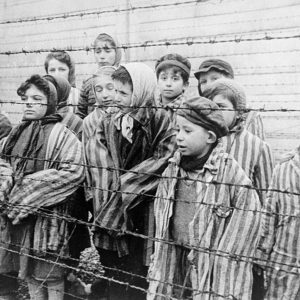On January 27 this year, much of the world came to a collective pause to remember that on that date 75 years earlier, in 1945, the Soviet army arrived at the gates of the Nazi death camp at Auschwitz-Birkenau, in Poland.
The Soviets were seen as the “liberators” of the camp even though they had not planned to do so. Saving the Jews or liberating the camps was never a specific military war aim of any of the Allied nations fighting German forces.
Auschwitz-Birkenau, which had been operating since 1940, had arguably become the epicenter of the Nazi plan of its Final Solution, an effort to rid the world, during World War II, of Jews and other designated groups such as Roma/Sinti, homosexuals and Jehovah’s Witnesses.
It is believed that approximately 1.1 million individuals, including the disabled, women and children, were murdered, many upon arrival, at Auschwitz-Birkenau.
At the present time, most of the world is in the midst of the worst global health crisis in the last 100 years, with hundreds of thousands of people stricken, thousands already dead, and more who both will be stricken and who will not survive.
This country has already witnessed shortages of food and some supplies (such as toilet tissue, baby formula and hand sanitizers), and there are a litany of complaints as to how our daily lives and the “comforts” we are used to are being altered by the COVID-19 scourge.
This month also brings reminders of events from World War II’s final weeks, and other 75th commemorative anniversaries, when American forces, similar to the Soviet Red Army, stumbled across the horrors of Nazi concentration camps on German soil.
Most notably, the U.S. forces “liberated” the camps at Buchenwald, near Weimar in eastern Germany, on April 11; at Dachau, a few miles from the city of Munich on April 29 in Bavaria, and at Mauthausen-Gusen, in Austria, on May 5.
It is believed that more than 56,000 people died at Buchenwald during its years of operation (1938-1945); more than 40,000 at Dachau, which was the only concentration camp to be open during the full 12 years of the Third Reich’s existence, 1933-1945; and perhaps as many as 122,000-320,000 people at the Mauthausen-Gusen complex of camps, also during the years 1938-1945.
While the camps on German soil were not meant to be pure extermination sites, the numbers of victims who did not survive them is nonetheless horrific and deserving of our remembrance.
Our job as humans is to try to remember the horrors of past human behavior, to become educated about why they happened, and to prevent them from occurring again.
We seem to have failed in our efforts to rid the world of genocide since 1945, and the phrase “Never Again” seems to ring hollow as we remember other global atrocities since the end of World War II.
The onslaughts against people in Indonesia, Cambodia, Bosnia, Rwanda, Iraq, Sudan/South Sudan and Myanmar all leave us asking “How could this happen?” over and over again.
As we struggle with difficulties in our own current society and lives, let us pause for a moment to both remember and give thanks to the American forces that ended the suffering for those at sites they came upon, as well as those efforts of our allied forces that “liberated” the camps that they too found in Germany.
Before we whine too much at the inconveniences that the global health issues impose upon us, let us remember that “there but for the Grace of God go you and I,” that we remain fortunate that it was not us who suffered the unspeakable torments in the concentration and death camps scattered from one end of Europe to the other.
It was not us who were reduced to living skeletons before the shocked eyes of the “liberators,” regardless of which allied uniform they wore. And it was not us that would have to try to rebuild our lives, frequently alone in a strange and new country, having to learn a new language, with no family members to call or to hug at the end of the day.
It is all a matter of perspective. April 11, 29 and May 5, 1945, are dates when we are certainly likely to be struggling with our own major issues that afflict us and our country.
But even if only for a brief time, I hope that we can still pause to reflect as to how fortunate we have been, remain, and shall be, that we were not designated, through no fault of our own, to become part of a group known as Holocaust victims or survivors.

